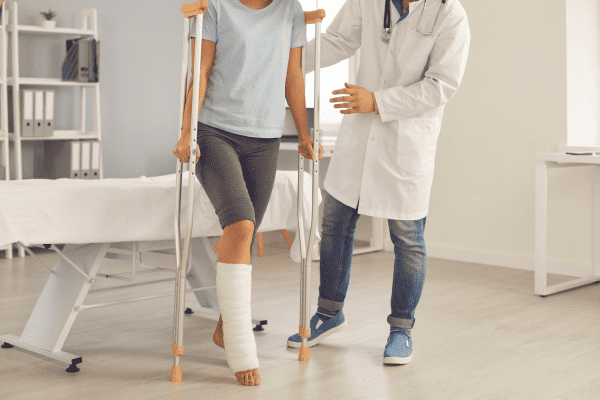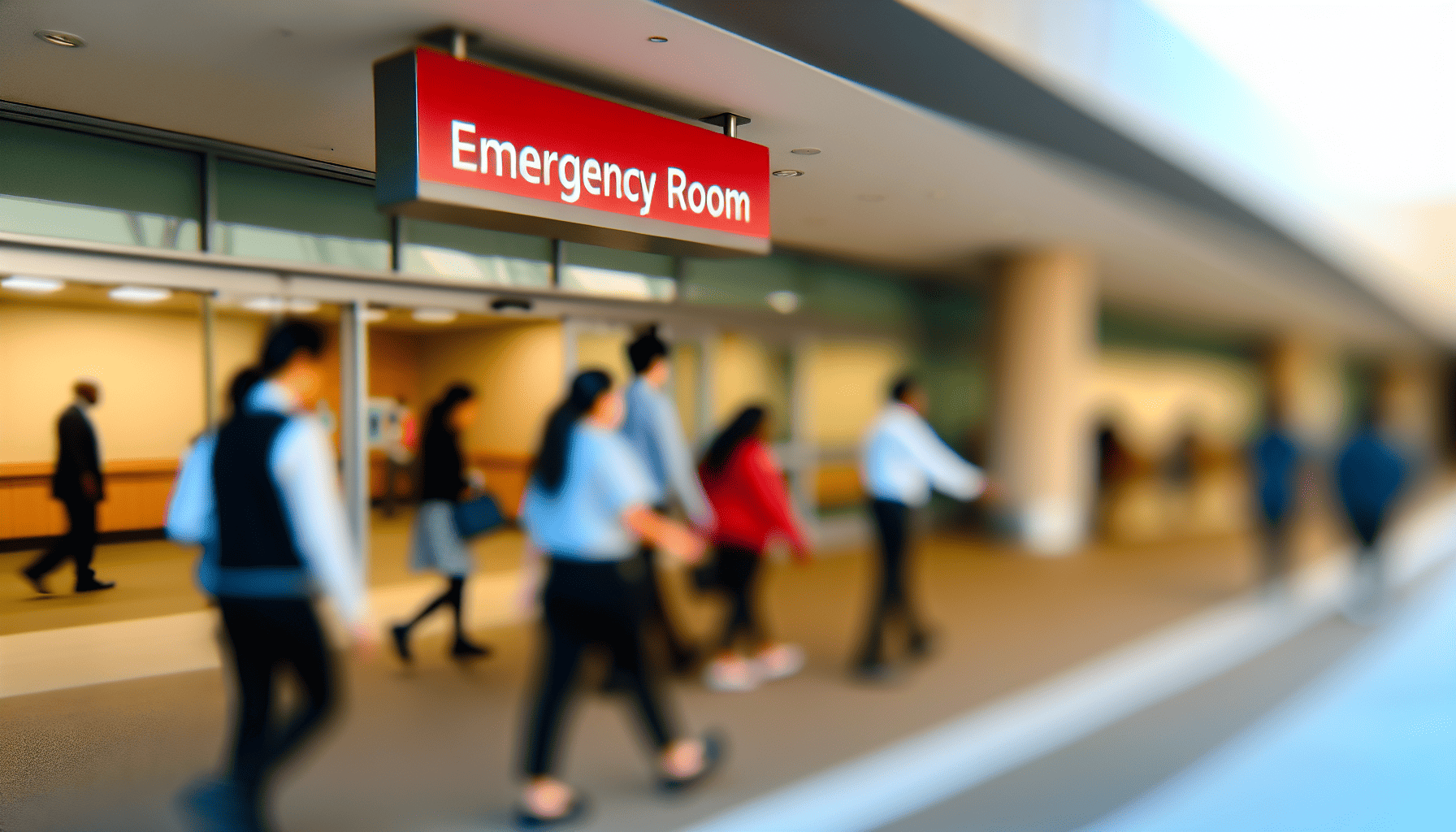If you’re asking yourself, “should I go to the doctor after a car accident?” it’s crucial to understand the potential risks of undetected injuries. A proper medical evaluation is pivotal to safeguard your health and future well-being. This article unpacks the reasons for seeking medical attention promptly and outlines how this choice can influence subsequent legal and insurance matters.
Key Takeaways
- Seeking medical attention immediately after a car accident is critical, even if no injuries are apparent, due to adrenaline masking pain and the potential for hidden injuries such as whiplash and internal damage.
- Medical documentation post-accident is essential for insurance and legal claims, as delays in seeking treatment can lead insurance companies to question the cause of injuries and deny claims.
- Consulting with a personal injury lawyer can provide substantial guidance through the legal system after an accident, with most offering free initial consultations and working on a contingency fee basis.
Immediate Steps After a Car Accident: Seeking Medical Attention
A Georgia car accident can be a life-altering event, and in the heat of the moment, it’s easy to overlook the importance of seeking immediate medical attention. It’s not uncommon for car accident victims to feel fine initially only to experience pain and discomfort hours or even days later. This delay in symptoms can be attributed to adrenaline, a hormone that our bodies produce in stressful situations, masking the pain of potential injuries.
Even if you believe you’ve emerged unharmed, promptly seeking medical attention after a car accident remains paramount. A visit to the doctor isn’t just about treating visible injuries; it’s about identifying and treating potential injuries that aren’t immediately apparent, like soft tissue injuries or internal injuries. Providing an accurate medical history to your doctor can ensure that you receive the most appropriate treatment for any car-accident-related injuries.
Identifying Hidden Car Accident Injuries
Car accidents can lead to hidden auto accident injuries such as:
- Ligament sprains
- Muscle or tendon strains
- Whiplash
- Internal organ damage
These injuries might not show immediate symptoms and can deteriorate quickly without prompt intervention. Minor aches and pains, numbness, or swelling could indicate more serious underlying injuries from a car accident.
That’s precisely why you should pursue a medical evaluation even if you feel okay post-accident. Detailed medical records not only provide evidence of the extent of any injuries but also those not immediately evident after the accident, ensuring a thorough documentation of your injuries.
The Role of Adrenaline
In the midst of a car accident, your body goes into survival mode, releasing adrenaline and endorphins. This fight-or-flight response can mask pain, making injuries feel less severe or even nonexistent. This masking effect could lead you to underestimate the severity of your injuries, delaying necessary medical attention.
Dismissing the urgency for medical treatment, because of diminished pain awareness from adrenaline, may result in further injuries. Untreated damage in one area of the body may affect other areas, exacerbating your injuries. For this reason, it’s recommended to seek a doctor’s consultation even after minor collisions, to dismiss any injuries that might not be initially symptomatic due to adrenaline’s temporary pain-masking effect.
Navigating Medical Treatment Options Post-Accident
After a car accident, knowing your medical care options can help you make informed decisions about your health. Car accident victims can choose between visiting a nearby emergency room, urgent care, or primary care doctor based on the severity of their injuries.
The choice between an emergency room, urgent care facility, or a primary care doctor hinges upon the severity of your injuries. Emergency room doctors are equipped to handle severe trauma, while urgent care centers and primary care doctors can address non-life-threatening injuries.
When to Visit the Emergency Room
The emergency room should be your first stop to seek medical care for life-threatening injuries or severe trauma resulting from a car accident. Emergency room doctors are the appropriate specialists to address trauma-related care.
Significant discomfort or pain in major muscles like the back after a car accident necessitates an immediate evaluation in the emergency room. Bear in mind, your health takes precedence, and prompt medical attention is vital to prevent additional complications.
Consultation with Primary Care Doctors
If your injuries from a car accident are not life-threatening and can wait for a scheduled appointment, it’s best to see a doctor, such as your primary care physician. Car accident doctors, like primary care physicians, can conduct a comprehensive examination of clear injuries and perform a series of tests to ensure a correct diagnosis for effective treatment.
Remember, post-accident care isn’t just about immediate response; it’s also about follow-up care. Your primary care doctor plays a pivotal part in your recovery, leading you through the recovery process and ensuring you’re progressing appropriately.
The Convenience of Urgent Care Clinics
Urgent care facilities serve as a bridge between primary care doctors and hospital emergency rooms, offering prompt and competent care for minor injuries sustained from a car accident. As adrenaline can mask injuries, a timely examination at an urgent care clinic may reveal issues that aren’t immediately obvious.
Urgent care clinics provide services such as:
- Surgical procedures for lacerations
- Skin biopsies
- Burn therapy
- Foreign body removal
- X-rays
These services are provided without the need for an appointment. Moreover, urgent care clinics are generally less expensive than an emergency room visit, offering a more cost-effective option for non-life-threatening injuries.
Documentation and Insurance Claims
Seeking immediate medical attention after a car accident not only improves your chances of a full recovery but also preserves your right to seek compensation for injuries sustained. Comprehensive medical records eliminate ambiguity about the injuries sustained, providing crucial evidence for any legal claims and insurance purposes.
However, delaying medical care can result in insurance companies denying claims, asserting that injuries were possibly caused by other events or pre-existing conditions and not the accident. As such, it’s vital to keep detailed records of your treatment and attend all follow-up appointments to ensure the success of any insurance claims.
Securing Crucial Evidence
Medical records, a crucial part of medical documentation, are indispensable when it comes to personal injury claims. They provide a detailed account of your injuries, treatments, and progress, eliminating any ambiguity about the injuries you sustained from the car accident. These records are reviewed by insurance companies and legal representatives to ensure that the treatments correlate with the injuries claimed, impacting the insurance billing process.
Therefore, it’s important to bring all pertinent documentation, including photographs, accident reports, medical records, and insurance information, to your initial legal consultations.
Billing Auto Insurance Companies
Billing auto insurance companies for medical expenses related to a car accident can be a complex process. Contrary to popular belief, an insurance company typically does not pay healthcare providers directly. Instead, your health insurance should be used to pay medical bills related to the accident.
Using health insurance for car accident-related medical treatment not only prevents medical bills from being sent to collections but also maximizes the amount recoverable from the car insurance settlement. However, bear in mind that many primary care doctors refrain from treating car accident victims as they are not equipped to bill auto insurance companies.
Long-Term Health Considerations After a Car Wreck
Sometimes, the impact of a car accident extends far beyond the immediate aftermath. Not seeking immediate medical attention after a car accident can lead to long-term health impairments or permanent damage. The full impact of injuries, including the costs of prescriptions, ongoing rehabilitation, and potential future medical procedures, contribute to assessing long-term needs and related compensation.
Chronic pain is a prevalent long-term effect of car accidents that can significantly affect your quality of life. Limited mobility or paralysis from serious vehicle collisions can lead to sustained challenges in daily activities and personal independence.
Assessing for Traumatic Brain Injuries
Traumatic brain injuries are among the most serious injuries one can sustain in a car accident. Symptoms such as:
- headaches
- dizziness
- vision problems
- difficulty concentrating
- memory problems
can indicate a concussion or traumatic brain injury.
The recovery from a traumatic brain injury can be a long process that progresses through stages, from coma to confusion or amnesia, and eventually leading to recovery. If a concussion or traumatic brain injury is suspected, it’s essential to consult a doctor immediately to prevent further damage and aid full recovery.
Dealing with Spinal Cord Injuries
Spinal cord injuries are another severe consequence of car accidents and warrant immediate emergency care. They can result in paralysis, diminished muscular strength, and other long-lasting effects.
The severity of a spinal cord injury is categorized by its location on the spine, with varying consequences including quadriplegia, respiratory issues, and loss of bowel or bladder control. Whether complete or incomplete, any spinal cord injury is life-altering and requires immediate medical attention.
Legal Support: Consulting with a Car Accident Lawyer
Navigating the legal system after a car accident can be overwhelming. Personal injury lawyers, such as Scholle Law, can provide valuable assistance by:
- Having a deep understanding of the legal system
- Employing investigative tools and strategies
- Preparing a robust trial strategy
- Navigating the legal process effectively
Attorneys specializing in personal injury cases are adept at communicating with insurance companies, safeguarding their clients’ rights, and advocating for fair claims. Not only do they have an intimate knowledge of all potential compensation areas, including medical expenses, lost wages, property damages, and even emotional distress, but they also work on a contingency basis, getting remunerated only if they win.
Free Consultation Offers
Most personal injury attorneys offer obligation-free initial consultations. During this consultation, they can provide legal advice and make an initial determination about your case.
The initial consultation is an opportunity to:
- Assess the viability of your personal injury claim
- Get to know the potential attorney’s qualifications, experience, and expertise
- Ask questions and understand the legal process
- Determine your next steps
Make the most of this meeting to ensure you have all the information you need.
Contingency Fee Structures
Most personal injury attorneys work on a contingency fee basis, meaning clients only pay fees if compensation is recovered. This fee arrangement alleviates the financial burden for clients, as there are no initial fees, and no fees are owed if the case is lost, thus making legal representation accessible.
Contingency fee agreements align the goals of the lawyers with their clients’ for receiving adequate compensation. Lawyers on contingency fee arrangements assume financial risk alongside their clients, incentivizing them to win the case and strive for the highest possible compensation.
Managing Recovery and Expenses
Managing recovery and expenses after a car accident can be a daunting task. Prompt medical care is essential for applying for Medical Payment policy reimbursement and to prevent insurance claim denial.
Failure to seek medical attention soon after the accident can affect your legal rights to compensation payout. Medical Payment insurance covers various approved medical services provided they are received within the specified time period following an accident.
Follow-Up Care and Rehabilitation
Follow-up care and rehabilitation are vital aspects of recovery after a car accident. Adhering to your doctor after a car accident’s treatment plan, which may include rest, medication, and physical therapy, is essential for a successful recovery.
Discussing the treatment plan with your doctor and asking about necessary physical therapy and rehabilitation is an important part of follow-up care. Additionally, seeking mental health support if needed can address the emotional impact of the car accident and aid in overall recovery.
Financial Assistance Options
Medical expenses can become a significant burden after a car accident, especially for those without adequate insurance. Some hospitals offer financial assistance programs, or ‘charity care,’ to individuals who are uninsured or underinsured and unable to afford their medical bills.
In Georgia, state law mandates that hospitals provide free or reduced-cost care to patients based on certain criteria, ensuring that essential medical services are accessible to those who are financially disadvantaged. To apply for charity care, patients need to request the hospital’s financial assistance policy, fill out an application, and regularly follow up on their application status.
Summary
In the aftermath of a car accident, it’s easy to feel overwhelmed. But prioritizing your health and seeking immediate medical attention is crucial. Whether you visit an emergency room, a primary care doctor, or an urgent care clinic, remember to keep meticulous records of your treatment. Consult a personal injury lawyer to navigate the legal system and advocate for your rights. And finally, don’t forget the importance of follow-up care and rehabilitation in your recovery journey. Remember, you’re not alone in this. Reach out to professionals who can guide you through this challenging time.
Frequently Asked Questions
Should I tell my doctor I was in a car accident?
Yes, you should definitely tell your doctor about your car accident, as they need to be aware of all your injuries and treatments. This will help them provide the best possible care for you.
Do you need to go to doctor for whiplash?
Yes, it is important to seek prompt medical attention if you experience symptoms of whiplash, especially after a car accident or any traumatic injury, in order to get an accurate diagnosis and proper treatment. Work with a healthcare professional to develop a tailored treatment plan for your individual needs.
How do you know if you’re okay after a car accident?
If you experience any injuries or pain days or weeks after the accident, seek immediate medical attention as there may be underlying issues that have developed or worsened. Don’t dismiss any new or lingering discomfort as minor, as it could be a sign of a more serious problem.
How long should you be sore after a car accident?
After a car accident, soreness can last from a few days to many weeks, depending on the severity. Seek legal assistance if needed.
How do medical records help in insurance claims?
Medical records help in insurance claims by providing a clear account of injuries and treatments, offering crucial evidence for legal claims and insurance purposes. This eliminates ambiguity and supports the claim.






